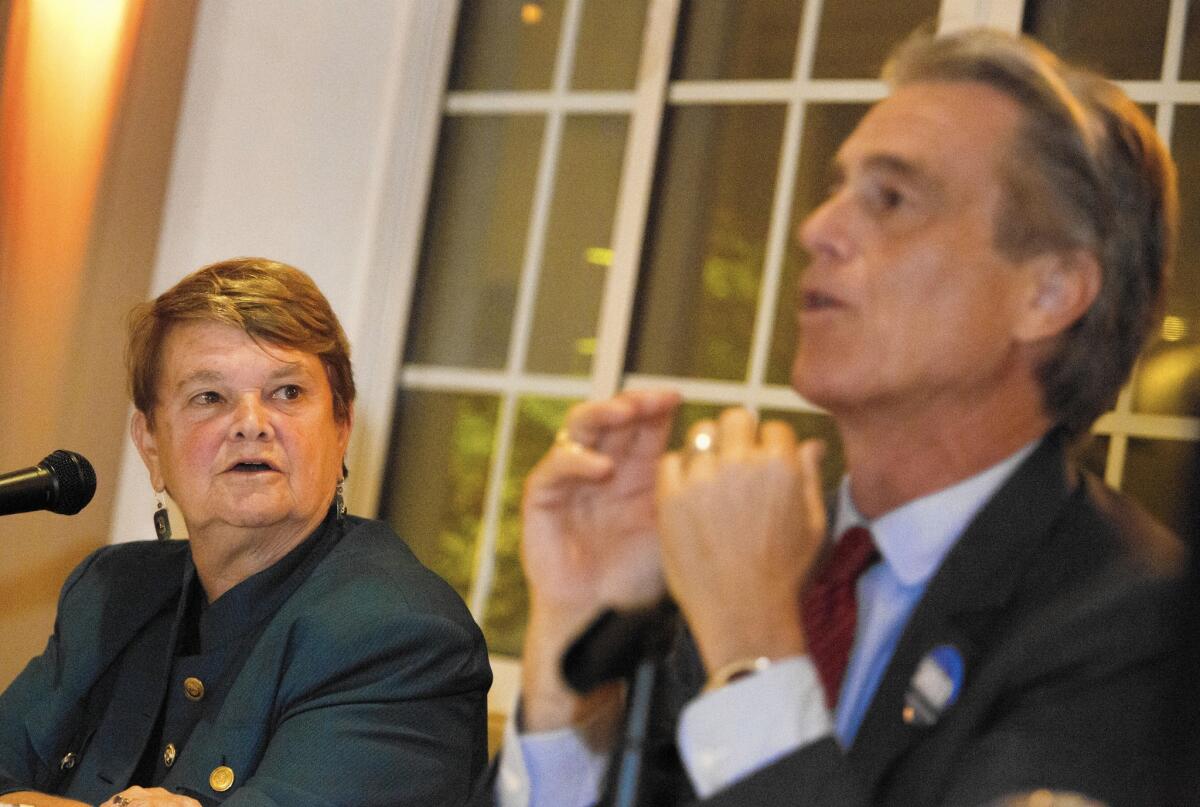Shriver-Kuehl supervisorial race takes on a confrontational tone

- Share via
The race to replace retiring Los Angeles County Supervisor Zev Yaroslavsky has taken an increasingly confrontational tone in the final weeks as former Santa Monica City Councilman Bobby Shriver has stepped up TV ads and mailers attacking the record of his rival, former state lawmaker Sheila Kuehl.
Shriver has sought to tie Kuehl to the state’s budget problems, electricity industry deregulation and cuts in education funding. Kuehl, who served from 1994 to 2008 in the Assembly and later the Senate, said the assertions are “idiotic lies” and a sign of desperation on Shriver’s part.
Bill Carrick, Shriver’s consultant, said the ads and press releases are necessary to show the public differences between the two candidates.
“It is very important to give the voters a choice so we are making sure they understand what the choice is,’’ Carrick said. “Sheila has cherry-picked a few issues from her record and is running on those. We felt it was important that voters have a more comprehensive view of her record, particularly on economic and fiscal issues.”
Kuehl, who finished first in a crowded field of candidates in the June primary, said Shriver’s ads and mailers criticizing her for education and state budget reductions were misleading.
“I think everyone knows that the state went into recession,’’ she said. “The state budget was cut by about 50% because of dropping revenues and it still wasn’t sufficient. We did our best.”
As for energy deregulation, Democrats and Republicans voted unanimously in 1996 to back looser restrictions on production and distribution of electricity, Kuehl said. When Enron, a Texas energy-trading company, started manipulating the markets, leading to rolling blackouts and higher energy prices, lawmakers moved to end the crisis, she said.
“When Enron had acted illegally to game the new law, we also voted unanimously to help our state utilities recover,’’ she said.
So far, Kuehl’s campaign and an independent, labor-backed committee supporting her have focused on her record and experience, without mentioning Shriver.
Political and election experts say candidates often turn to negative advertising because it works, particularly with low-information voters who tune in to a race in the last days. In a close race, attack ads can make the difference, said Jessica Levinson, who teaches election law at Loyola Law School.
“Negative advertising hits a chord with a lot of voters,’’ Levinson said. “They may not be able to say why they’re voting for Shriver. They just remember there’s something they heard about Kuehl that they don’t like.”
Campaign finance records show that the candidates and committees supporting them are sitting on about $3 million in cash, suggesting that a late barrage of messages — positive or negative — may be just beginning.
catherine.saillant@latimes.com
Follow me on Twitter for more news about supervisor’s race.
More to Read
Sign up for Essential California
The most important California stories and recommendations in your inbox every morning.
You may occasionally receive promotional content from the Los Angeles Times.











